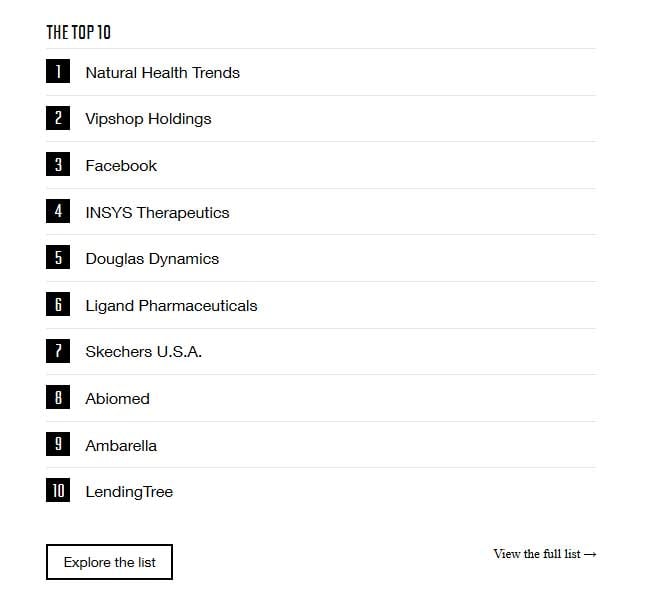How to Find Your Web Design Niche & Why Should You At All
All of us know the saying ‘Jack of all trades, master of none’. This is the reason why I decided to write an article about choosing a web design niche. Making the right choice is especially important for freelancers as big companies, like TemplateMonster, are able to cope with developing multiple niche website templates.
10 - 15 years ago, that wasn't the case. There were generalists who focused on web design and development for any niche (horizontal approach). Their portfolios would range from pet stores to attorneys.
Now, as demand grows, there's an opportunity for companies to focus on a specific niche (vertical approach) while still growing their business. The ability to work and service a client remotely has helped, in addition to improved marketing opportunities (SEM, email, social, etc...)
The competition in web design industry is tough, but entrepreneurs with clear goals still have brilliant opportunities.
Google search on ‘freelance web designer’ yields about 2,150,000 results.
According to Occupational Outlook reports IT jobs for web developers, information security analysts and computer network architects are expected to grow by 20+% between 2010 and 2020.
E-commerce continues to grow rapidly. Online shopping is expected to increase faster than the overall retail industry. What does this mean for web designers/developers? As retail firms expand their online presentations, demand for web designers/developers is going to swell.
As you see from the studies, the potential for IT business as well as freelance jobs is immense. So, if you are a freelancer, you’d better learn how to market and run your business.
Specializing in one or two niches is one of the ways to improve it. Think well, make an extensive research, choose a niche, and roll in.
Related posts
How Do I Freelance and Get Hired [or How to Get on Tracks after Career Burnout]
Killing Two Birds With One Stone or Blogging Benefits for Freelance Designers
Best Tips to Find Clients as A Freelance Digital Nomad
How NOT to Hire a Freelance PHP Developer for Your WordPress Projects
10 Ecommerce Themes That Will Make You a Fortune on Upwork
30+ Time-Tracking Tools for Companies & Freelancers – Take Control of Your Tasks!
Dedicated to All Workaholics: How to Stop It & Bring Back Happiness to Your Life
Why is designing for a specific niche beneficial for you?
When you are trying to grow your freelance web design business, you want to spend more time designing websites and less time solving the riddles what a client wants and needs.
Finding the right web design niche increases your productivity and revenue accordingly. That is, makes your web design business more profitable.
It’s impossible to be equally good in all areas of activity if you are not a genius, of course. Being a niche designer allows you to focus all your time and energy on narrower tasks. You can’t but agree that it’s possible to become an expert who can cater to the needs and challenges of one group of clients quicker than learn a little bit of this and that about many different businesses, regions or website styles.
Minding the trends
Designing for a specific niche, you’ll work with a smaller group of clients with similar requirements. This will let you study current web design trends for a particular industry. This way you will serve your customers better. As we have already mentioned above, your productivity and efficiency will improve because you won’t need to spend much time unriddling what the needs of the varied clients are.
Decide on your specialized services
When you have a narrow focus, you are prepared to meet any of your clients’ web design needs. You are much more familiar with new developments and common concerns affecting your target market. Customers trust professionals who can discuss the latest techniques of, say, cosmetics surgery or demonstrate the evolving demands of tech-savvy customers to business owners. This way you’ll vividly demonstrate your prospective clients that you are great at solving their particular issues.
Work hard on researching and developing new unique products and services for your niche clients. Ask yourself the following question frequently, “What another product or service could I create that fills a particular need for this target market?”
Become an expert
It’s much easier to establish yourself as an expert in one area of web design/development than become reputable as an overall professional in design because there is just too much competition. Clients will trust you if they know that you are a specialist rather than a generalist and that you know all their different pains inside out.
Client benefits of working with a niche expert
At this section, I will state company arguments why they want to work with a specialist rather than a generalist.
Supposing your web design business is going through an income tax audit. What kind of assistance would you prefer? Will it be a general accounting firm or the one that specializes in taxes for web designers? No doubt that a generalist could do the job, but a specialist has a extensive and detailed knowledge of your situation.
The same thing works with niche designers. Hiring a niche designer means potentially no headache for the customer. The client will have to do fewer revisions due to incorrect information or terminology used by the designer in the mockup. In fact, they will take advantage from your industry-specific services and your comprehensive knowledge of the vocabulary and issues of your business.
Choosing an interesting, profitable niche
It is recommended to base on your interests, experience, and abilities when choosing a profitable niche. You need to get substantial income to earn your living, but money isn’t the one and only criterion to be taken into account. You can work with several groups if you know you will be bored by working with one. Why not including one or two other niches that you’re passionate about or find enjoyable?
Going on with industry niches
Well, what is one of the simplest ways to specialize? Focus on a single industry or field. Think about an awesome nickname you could quickly get tagged with. For instance: “the real estate web design guy,” “the personal photographer portfolio page web design gal.” BTW, you can use this nickname in your marketing and SEO strategies later on.
Design for organizations and groups
Don’t lose the opportunity to create websites for groups and organizations. Such kind of activity will quickly generate word-of-mouth referrals and help build your niche business. Here are some examples of groups that need websites: sports leagues, service groups, business organizations, religious groups, charity and non-profit or fundraising organizations.
Think well about the financial matters before deciding to work with a particular group. Organizations like business-networking services are more profitable than others. However, volunteering your services for a charity website is a worthwhile endeavor and one more chance to showcase your skills and contribute to your portfolio.
Designing regionally and locally
The Internet provides us with a global connection, but it’s not a secret that some customers prefer dealing with local businesses and having face-to-face meetings. What you need to do is discover local business opportunities. Look around your area to see how many organizations need websites.
Businesses are finding web presentations to be utterly important in attracting customers. And the role of website in getting super profits continues to increase. Of course, everything depends on the population and activities in your area, but you might be able to concentrate on web design services in your city, region or state. You could fill a niche by focusing on one industry in your area only.
Website style as another way to find a niche
Do you enjoy creating online stores, or news portals? Maybe you want to work exclusively with WordPress, Joomla, HTML5, Magento, PrestaShop or WooCommerce. Declaring yourself as a web designer who provides very particular website styles to a wide range of businesses is one more way to find a niche.
Renovations, upgrades and specialty services
Similar to the construction world, where there are renovation businesses fixing problems that the initial contractors left behind, web designers/developers could do the same thing. You can find your niche in web design renovations or upgrades. You may offer the services for a certain industry, region or type of service. For example, you could upgrade websites to be mobile-friendly/responsive or to SEO optimize them to engage users better.
Still thinking what niche to choose?
Media will help you. Look through the headlines in the business section of the newspaper or on a news website. What businesses are on the rise these days? Don’t forget about your previous clients. Which ones do you still remember because working with them was enjoyable and which ones are busy and growing?
Know the niche-picking pitfalls
Avoid niches that are too small, that you don’t like, or that don’t pay. It’s obvious that if you choose a niche that is too small, this could result in an unsustainable business.
Unfortunately, it’s not always possible to follow your greatest passion. I.E.: you might be crazy about creating websites for fans of ancient Greek poetry, but most likely you’ll earn more by designing websites for clients with bigger marketing budgets.
Consider traditional fields such as medicine, law, accounting, dentistry, financial services and healthcare. All of them might be lucrative niches for freelance web designers. But before soaking yourself in designing for one of the above-mentioned industries, make sure you are willing to invest time and energy in learning about that particular subject and figuring out whether you’ll enjoy interacting with the people who you’ll be working with and for.
Resign yourself to the thought about the necessity of niche design
Not all freelance web designers are ready to accept the idea of working in a niche. This happens because it seems to them as if they are losing clients just because the latter don’t fit their niche. But let’s view the situation from the other side. While large web development firms have enough resources to serve a wide variety of clients profitably, a freelancer doesn’t.
Make simple calculations. Gauge how many hours you spend gathering information and preparing work for your clients. If you charge by the project, estimate how much money you would save if you already had this information from previous projects.
E.g.: If you have to spend four hours researching and your hour rate is $80, that’s $320 in lost revenue, because you could have spent those four hours working on other projects.
Let this information sink and tell me what you think. Are you going to select a niche to work within? Maybe you are already working within some niche. Please share your thoughts/experience with the community.
If you disagree with me and prefer to stay Jack-of-all-trades, I would also be happy to read your arguments in the comments section.
P.S. Don’t forget to rate, like, and share this blog post with your friends who are also at the crossroads now.
Get more to your email
Subscribe to our newsletter and access exclusive content and offers available only to MonsterPost subscribers.









Leave a Reply
You must be logged in to post a comment.